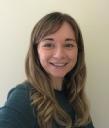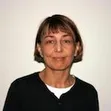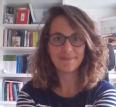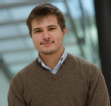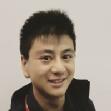WIHEA WATE Winners 2021
Huge Congratulations to all our WATE winners 2021!
We are very pleased to see so many of our WIHEA Fellows, Alumni and Members being recognized for the fantastic work they have been doing in this unprecedented time.
Find out more about them below:
|
Lory Barile (WIHEA Member)
|
I am an Associate Professor (T-Focussed) in Economics, Fellow of the HEA and Associate of The Economics Network (EN). I am Director of Graduate Studies (Taught Degrees), and among other responsibilities, within the Economics Department, I am also WP Co-ordinator and Co-chair of the Students’ Progression Working Group. Over the summer 2020, I played a key role within the Economics Department to help transition to a blended learning approach, creating written resources and recommendations for colleagues and students to assist them moving to online T&L delivery. During the pandemic, I also developed a ‘virtual’ Departmental study buddy scheme to offer students with more chances to work with their peers and interact and socialise with others from their Programmes. Linked to the work conducted over the summer 2020, I am currently leading on an IATL funded pedagogic research project aimed at understanding students’ engagement with online resources pre/post COVID-19. |
|
David Bather Woods (WIHEA Fellow)
|
I am a Senior Teaching Fellow in the Department of Philosophy. I am currently the Director of Student Experience and Progression for Philosophy. In recent years, I have taught the modules Philosophy of Religion, Nietzsche in Context, Plato & Descartes, and Applied Ethics. I have a new module starting next year called Philosophy of Evil. I enjoy interactive lectures and lively seminar discussions with my students, from whom I have learned more than I can say. This year I created the Philosophy Teaching Exchange as a hub for staff and graduate teaching assistants to exchange best practice and facilitate peer dialogue in the Philosophy Department. It provided our department with an opportunity to coordinate and collaborate on our efforts to create the best teaching and learning experience we could in an extraordinary year. I also worked with my colleagues to develop and refine the models our department used for delivering blended teaching and learning. I selected a workshop-based model for my own modules this year (Nietzsche in Context and Philosophy of Religion). I used these workshops to engage students as actively and socially as possible by setting them collective creative tasks to work on with one another, some of which were directly linked to assessment tasks. I worked on strategies and activities to keep a community feeling in the department, including relaunching social media accounts, starting a weekly newsletter, and closely working with our Philosophy Society to provide successful community events and additional academic support activities. |
|
Siri Chongchitnan (WIHEA Fellow)
|
I'm a mathematician and Director of Student Experience at the Warwick Mathematics Institute. I'm also a researcher in cosmology. I present an informal reflective piece summarising my journey in teaching maths during this unpredictable year. In particular, I discuss my use of a) fill-in-the-blank notes, b) online quizzes, c) well-edited videos and d) live polling. I also reflect on students' reception of my teaching, students' wellbeing, and my plan for the next uncertain year. Finally, I outline how my work on educational technology has impacted positively on the Warwick community and beyond. |
|
Naomi de la Tour (WIHEA Fellow)
|
I am a Senior Teaching Fellow and academic lead for Project Support in the Institute for Advanced Teaching and Learning. I chair the Learning from Crisis WIHEA Learning Circle and co-chair the WIE Future of Public Engagement in HE Learning Circle. |
|
Cathy Hampton (WIHEA Alumni)
|
I am the Director of Teaching and Learning in the SMLC, and I'm based in the French section there. My recent research has focused on: HE pedagogy and the Year Abroad, bridging the gap between school and university-level language teaching, interdisciplinary and cross-curricular learning, the student experience and student-centred pedagogy. |
|
Jim Judges (WIHEA Fellow)
|
I am a Senior Academic Technologist in the central Academic Technology team, now based in the Education Group. I support the Learning Design Consultancy (LDCU) and I work two days a week in the Chemistry Department. I have also provided some technology support for Engineering during the last year too. The past year has been a whirlwind of activity with an understandable increase in support requirements related to online learning. I have enjoyed working with colleagues in departments and across the university to help them to develop their skills and confidence so that they can deliver an effective and more engaging experience for our online learners. Some highlights include leading a small team to produce one of the Warwick Online Learning Certificate (WOLC) modules that was later adapted and developed into the Warwick Online Learning Fundamentals course aimed at all new students starting in October 2020. Throughout the year I have facilitated weekly LDCU Open Discussion support meetings to develop networking and further encourage the sharing of practice. I have also enjoyed producing a series of LDCU ‘Talking Online Learning’ Podcasts and it has been a privilege being able to interview colleagues from across the university to find out about and share their experiences, challenges and solutions related to the move to online learning. |
|
Heather Meyer (WIHEA Member)
|
I am an IATL Teaching Fellow. In this role, I develop strategies which aim to diversify assessment and integrate ‘authentic’ interdisciplinary and transdisciplinary learning experiences within assessment cycles. I advocate holistic learning and pedagogic innovation, and my research interests involve exploring how the ‘global’ is featured within educational contexts. I am very honoured to be a WATE finalist this year! 2020/21 has produced a range of unprecedented challenges, and for that very reason has created an exciting opportunity to reimagine my teaching practices. My modules this year included asynchronous multidisciplinary peer learning, which helped create a sense of community amongst my students from different disciplinary backgrounds; a special focus on student-led learning and student-devised content; co-created assessment documentation (including assignment briefs and marking criteria) with a special focus on transdisciplinarity and decolonisation; and interactive online learning opportunities geared to minimise accessibility and engagement barriers. Overall, an exciting year full of innovation |
|
Meleisa Ono-George - Butterworth Award Winner (WIHEA Fellow)
|
I am a social-cultural historian of race and gender in Britian and the Anglo-Caribbean, as well as a public historian. I am chair of the WIHEA Anti-Racist Pedagogy Learning Circle and co-chair of the University's Race Equality Taskforce. Working with staff to develop anti-racist pedagogical practice and challenge racial inequalities, and through this work, create cultural change and a positive student experience |
|
Stefania Paredes Fuentes (WIHEA Fellow)
|
I am an Economics Educator working on increasing diversity in Economics and creating more inclusive learning environments that embrace this diversity. At Warwick, I co-organise the Warwick Anti-Racist Pedagogy Forum. In the UK, I am Diversity Champion of the Royal Economic Society and sits in the Economics Network’s Executive Board. COVID19 challenged every aspect of our work. My goal this year was to rethink academic spaces in a way that students could engage and feel part of the academic community despite the challenge we all (students and staff) may encounter. In order to support students and in the hope that all students had a fair chance to do well in my courses, I created teaching resources that embedded three principles: engagement, flexibility and collaboration. Using Teams, I developed learning communities that fostered students’ sense of belonging. I learnt that teaching with empathy adds value to my work as a teacher. |
|
Martyn Parker (WIHEA Fellow)
|
I am the Mathematics and Statistics course director. I have worked on national projects around the transition from school to university mathematics, learner analytics and problem-solving in mathematics. I also work with national organisations to encourage and facilitate participation in higher education. I explore how this crisis has empowered us to examine, reflect and challenge our approach to education. The rapid reinvention of higher education has opened our eyes to new learning environments that, in many cases, have enhanced our delivery. Nevertheless, reflection is required to understand the pedagogical knowledge underpinning this paradigm shift and its profound implications for the future of education. |
|
Dani Pearson - Butterworth Award Winner (WIHEA Member)
|
Hello! I am Dr Dani Pearson, a Teaching Fellow in the Chemistry Department and most of my teaching focuses around the undergraduate laboratory modules. I have been working at Warwick for four years and continue to love what I do! Teaching in the lab is so different to giving lectures as you can really get to know each student personally and understand their learning style. For me, getting to speak to and know our fantastic students better and teach them how to make some pretty cool coloured compounds in the lab is the true highlight of my job! This year has been a huge learning curve for all of us, particularly all those who are most involved in practical teaching! A highlight for me is an experiment I transformed into a research, business-themed, online experiment, where students acted as research scientists, worked through a personal Moodle lesson, before meeting back together to collaborate their results and plan a discussion for the “staff meeting”! Other highlights include the 1st year non-chemistry online presentations, where despite not being face to face, were still able to instil a wholesome sense of community amongst students. Also, a collection of bespoke, Warwick specific resources have been developed to support practical learning online which will be used beyond the pandemic. In addition, I am sure that many of these resources and the lessons learnt while developing them have shaped the way we will teach practical Chemistry in future, and could be very relevant for other practical based subjects, in a collective effort to improve our student experience of all practical sciences. |
|
Kerry Pinny (WIHEA Fellow)
|
I am a Senior Academic Technologist in the central Academic Technology team and member of LDCU. I lead the team that provides guidance, training and technical support for Moodle, Mahara, H5P, Vevox, Padlet, eStream and Echo360. I have been involved in a lot of collaborative work this year. Putting together Moodle courses for staff (TfLO) and students (WOLC), online guidance on our tools, training and workshops. None of my ‘achievements’ would have been possible without the support and input of colleagues from across the University. I hope, in my own small way, I have made a difference to colleagues and students. |
|
Claude Tregoat (WIHEA Member)
|
I took an MSc in International Studies, I worked in the tourism industry and as a translator but was always more interested in teaching languages. After completing my PGCE, I joined the Language Centre and my pedagogical interests are in virtual exchanges. Over the past year, moving to remote teaching, my priority was to preserve the human connection essential in the learning and teaching process. To achieve this, I started by building a community with my students, with online activities even before our first class. I supported inclusivity and giving students a voice by exploring the use of French inclusive writing in class. I promoted global virtual mobility by partnering my students with Université Clermont Auvergne students for a telecollaboration project, and allowing them to claim an Erasmus+ Virtual Exchange badge. To foster further collaboration and students as active learners, I introduced weekly asynchronous discussions in small groups in Teams for students to develop their language skills. To reduce stress and support access, I streamlined our learning environment. Finally, I adopted a sustainable approach to Teaching and Learning to promote resilience, and students as actors of change. |
|
Leticia Villamediana Gonzalez (WIHEA Fellow)
|
I joined Warwick in 2014 as a Teaching Fellow in Hispanic Studies, SMLC. I am currently a Senior Teaching Fellow and I am also Language Coordinator and SSLC Academic Convenor in Hispanic Studies. I was also honoured to become a WIHEA Fellow a couple of years ago, which has been an excellent learning opportunity and experience. As a teacher, it has been the most challenging but rewarding year of my career. And I know this also depicts what my colleagues and students have experienced. The enormous teamwork started over a year ago when we all began planning and creating responsive learning and teaching opportunities for challenging times. But it has also encouraged me to be more creative, flexible and adaptable, three main features that I will definitely take with me in my journey as I move forward. I have successfully convened the two largest modules of my department, involving 90 final-year students and 70 first years who were about to experience university life for the first time in one of the most difficult years. I have also led several pedagogical projects. But above all, I have tried my best to be there always with a smile to support all my students and to make their hybrid and online learning experience worthwhile. |
|
Naomi Waltham-Smith (WIHEA Member)
|
I'm an Associate Professor in the Centre for Interdisciplinary Methodologies and Chair of the Faculty of Social Sciences Education Committee. My research revolves around the politics of listening and I'm passionate about the role of listening in promoting more inclusive and democratic forms of education This past year reminded me that, as a teacher, I enter the classroom as a learner. In the context of the pandemic, my priorities were to help foster personal connections and promote inclusive approaches to interdisciplinarity. I learned from working in dialogue with my students about the importance of sharing concrete personal experiences promoting empowerment and participation, and also for enabling students to contextualize difficult theoretical concepts. Supporting students at a time of attenuated social connections and exacerbated inequalities required honing the skill of listening to understand how the varied challenges they were facing were (re)shaping their experiences of study. |
|
Jonathan Canioni (WIHEA Member)
|
A 4th Year Operations PhD student at WBS, I am passionate about the subjects I teach. I endeavour to share this passion with my students by creating stimulating, engaging and inclusive learning environments. Teaching has been one of the most satisfying, enjoyable and thought-provoking experiences of my life. My research at WBS helps organisations create and deploy collaborative practices to support information and knowledge-sharing in projects. I observed the benefits of effective practices on the improvement of knowledge and competencies of individuals and teams. I endeavoured to design my own practices to support my students’ academic development by offering them a range of opportunities. My writing clinics and literature workshops helped students to hone their essay-writing skills, to assimilate the module content effectively and to build confidence in their capabilities. As educators, we can implement engaging learning practices if we just listen and communicate with our students. |
|
Gah-Kai Leung (WIHEA Member)
|
My name is Gah-Kai (pronounced 'GAR-kay'). I'm currently finishing the second year of my PhD in the Department of Politics & International Studies. My research focuses on the ethical and political issues in earthquake/tsunami risk management. I have a broad interest in social and political philosophy, science and public policy, applied ethics and disaster risk reduction. Risk-taking and experimentation have been the hallmarks of my teaching this year. Asking students to investigate the barriers faced by disabled people in navigating Warwick campus, for example, led to revealing discussions about power, agency and institutions. I have also assigned sources beyond the typical journal article, such as literature and films; academics do not have a monopoly on meaningful political ideas. This year for instance, my students read Graham Greene's The Quiet American, which vividly dramatizes ideological conflict in ways that are impossible to convey in a scholarly text. As a politics educator, my guiding principle has been (and will always be) to inspire young people to rethink the world around them and their place in it. |











